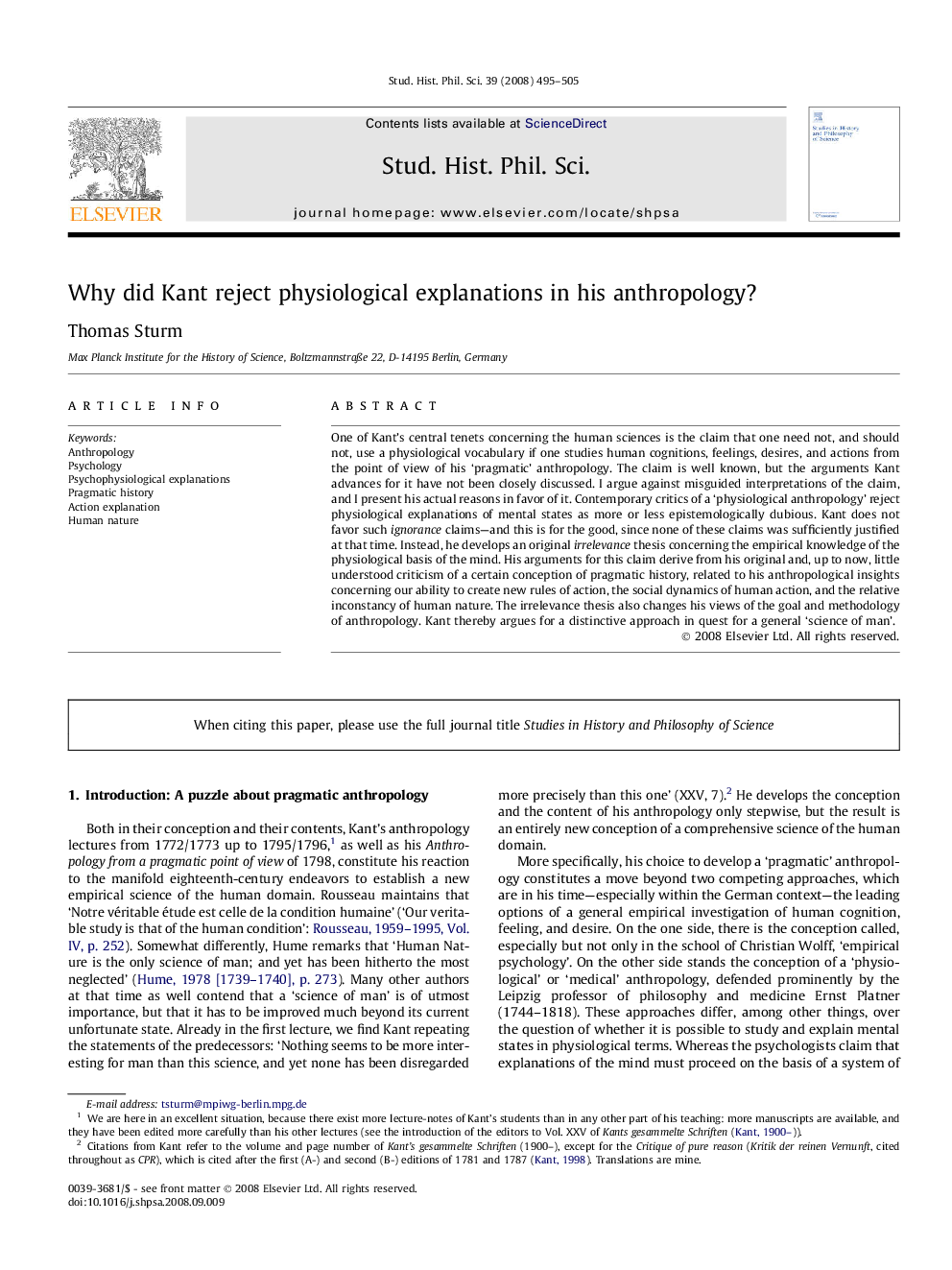| کد مقاله | کد نشریه | سال انتشار | مقاله انگلیسی | نسخه تمام متن |
|---|---|---|---|---|
| 1160702 | 1490358 | 2008 | 11 صفحه PDF | دانلود رایگان |

One of Kant’s central tenets concerning the human sciences is the claim that one need not, and should not, use a physiological vocabulary if one studies human cognitions, feelings, desires, and actions from the point of view of his ‘pragmatic’ anthropology. The claim is well known, but the arguments Kant advances for it have not been closely discussed. I argue against misguided interpretations of the claim, and I present his actual reasons in favor of it. Contemporary critics of a ‘physiological anthropology’ reject physiological explanations of mental states as more or less epistemologically dubious. Kant does not favor such ignorance claims—and this is for the good, since none of these claims was sufficiently justified at that time. Instead, he develops an original irrelevance thesis concerning the empirical knowledge of the physiological basis of the mind. His arguments for this claim derive from his original and, up to now, little understood criticism of a certain conception of pragmatic history, related to his anthropological insights concerning our ability to create new rules of action, the social dynamics of human action, and the relative inconstancy of human nature. The irrelevance thesis also changes his views of the goal and methodology of anthropology. Kant thereby argues for a distinctive approach in quest for a general ‘science of man’.
Journal: Studies in History and Philosophy of Science Part A - Volume 39, Issue 4, December 2008, Pages 495–505